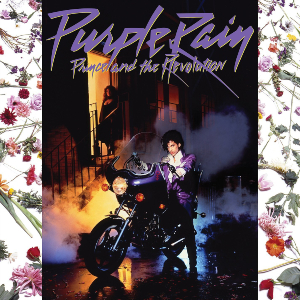Album Review: Blonde - Frank Ocean
10/10
Moving off to college certainly didn't help with the timing of this review. I've been busy, to say the least. If you're taking the time to read this, thank you for displaying interest in my writing despite its untimely nature.
Background: That hallowed day has finally arrived. Frank Ocean has emerged from his self imposed reclusion to bless us with another album. If you are new to the Frank Ocean saga, as you would be if you stopped to read this background, then I suggest you read the review I wrote on Ocean's last masterpiece, Channel Orange. That review can be found here. If you are curious as to Ocean's adventures since the release of Channel Orange, I suggest you check out this informative and easy to follow guide, courtesy of the folks at Pitchfork.
Review: The most immediately shocking feature of this review, dare I make that assumption for my reader, is the score I have given to Blonde, that being a perfect score. Assuming logical reasoning remains unchanged from the last time I browsed its Wikipedia page, that would denote that Blonde is a perfect album. Yet that is far from the truth. Anybody who has sat through the bursts of misery that are the interludes "Be Yourself" and "Facebook Story" can attest to the album's imperfection. On the production side of things, some more drums would have been nice. This listener would have enjoyed a tracklist featuring one or two more upbeat numbers, to serve the same purpose "Monks" and the first half of "Pyramids" served on Channel Orange. Yet these complaints are more "what if?" than "what is." One can only evaluate the work in front of them, and must refrain from wondering what could have been. What is in front of us is a masterpiece of an album that has been seen rarely in modern music, despite its flaws.
A question that I continually pose myself is whether or not this album is better than Channel Orange. In all honesty I do not know, and that is part of the album's brilliance. With Blonde, Frank Ocean created a work of art that functions as a completely independent album, so different from Channel Orange that it defies comparison to it's predecessor. While it would have been all too easy to create Channel Orange 2, Frank Ocean developed an album that represents a full step forward from his previous works and that is the true reason for the perfect score. Blonde being far from perfect is irrelevant. Take Abbey Road or My Beautiful Dark Twisted Fantasy. Nobody in their right mind wants to listen to "Octopus's Garden" or "Hell of a Life" every time they play the album, not to mention "Because" or "Who Will Survive In America." Yet both of these albums are undisputed 10/10s, especially Abbey Road (which has even more duds than MBDTF), and a large part of that is context, as with Blonde. How could a person not give a 10/10 to The Beatles' "final" masterpiece, the grand culmination of their essence? How could a person not give a 10/10 to Kanye West's comeback album, the album that cemented his place as the most daring entertainer of our time? In final, how could one not give a 10/10 to an album that managed to beat the hype, despite being the most talked about and controversial album of the 2010s, as well as being an improvement upon possibly the best album of that decade? Blonde deserves its perfect score for meeting the public's overwhelmingly high expectations, as well as for being an improvement on an album that was already considered near perfect.
Sonically, Blonde is a completely different album from anything Frank Ocean has done in the past. This album is far more guitar-heavy than Ocean's previous efforts, and features a far more delicate and ethereal palette than Channel Orange or nostalgia:ultra. I am not yet sure of the extent of Johnny Greenwood's involvement in this album's creation, but after pushing his own band towards a quieter and more atmospheric sound this year, I would not be surprised if the guitarist had a prominent hand in the album's creation. While Channel Orange featured light guitars (usually for the sole purpose of creating melody lines, such as on "Forrest Gump" or "Lost"), the guitar becomes a dominant instrument on Blonde. Tracks like "Ivy" and "Self Control" feature guitars, and few other instruments. Returning from Channel Orange is Ocean's fantastic taste in strings. "Pink + White" maintains "Bad Religion" and "Pink Matter"s reliance on gorgeous string sections to create soft yet ambitious moods. This album also takes far less influence from classic and neo soul, opting for a more art pop and electronica oriented approach. You can practically hear Bon Iver's influence at multiple points in the album, especially during the outro of "White Ferrari," a gorgeous tune that lifts its melody from an underrated Beatles song. Ocean twists his voice to mimic Justin Vernon's and the results are as heavenly as expected. The lack of overt drums on many songs also contributes to this feeling of dreamy weightlessness, making most songs feel as spontaneous and delicate as a breakaway spiderweb in the wind. A gorgeous display of this is "Solo." This track is mostly rapped rather than sang, and Ocean's flow and lyricism proves that he could easily beat Drake at his own game. Ocean's cadence is led by a lone organ, which syncs to his words in a beautifully descriptive yet abstract chorus, as well as doing this occasionally during the verse. The lack of drums gives Ocean's rapping an experimental edge, as well as conjuring the image of Ocean alone at his piano, singing to himself. When drums do appear in songs, they are usually to great effect. Take for example, the beat switch on highlight "Nights." After a short guitar solo, some crisp hi-hats enter the song as it betrays its previously hedonistic tone for a more vulnerable and affected outro. The opening track "Nikes" features one of the album's more prominent drum lines, a lazy, echoing stomp that gives the songs its swirling feel. As a whole, Blonde opts for a more sparse and minimal sound than any of Frank Ocean's previous material, and it results in a beautifully personal sound.
Blonde represents a step forward in lyricism for Frank Ocean, which was already previously considered one of his strengths. This is possibly as a result of his rapping, which has gotten infinitely more confident and skilled since his last musical outputs (although Frank has never been a slouch in that department). Songs like "Solo" and "Skyline To" feature gorgeous imagery, such as descriptions of constellations, lights, and driving, as well as some of Frank's off-kilter rapping. Lyrically, the album discusses many of the same themes as Channel Orange, such as drug use, sex(uality), love, and religion. Many times Frank Ocean will use the instrumentation to lend weight to his lyrics, such as when the words and organ play in unison on "Solo." I refuse to believe it is coincidental that one of the most religiously themed songs on the album ("Godspeed") is backed by keys straight from a church and chopped gospel backing vocals, while Ocean sings of prayers, god, and glory and religious imagery runs amok. Another lyrical highlight of the album is "Ivy," my personal favorite from the album. This song reflects on mistakes made in love, as well as the feeling of youth. The chorus opens with the line "I thought that I was dreamin' when you said you loved me, " a line that hits with such clarity and poignancy that it is the highlight of this song. By the end of the chorus the relationship has faded, which only helps to increase the line's potency. In this case, the love was a dream. The rest of the song sees Frank reminiscing on his experiences with the OF crew, and missing just being able to hang out with his friends. The song has a dream like quality until a shrieking voice rips the song back to reality, followed by the sound of objects being broken. Ocean's strength has always been his ability to paint a scene and fill it with emotion, and this ability has only gotten stronger with time.
In all, Blonde represents a forward movement for Frank Ocean in nearly all aspects. This album is more experimental, coherent, personal, and lyrical than Channel Orange, which could often feel like a mash-up of styles and ideas at times. Blonde also has an inherently contradictory nature, and in more ways than just its title. The album is not without its flaws, yet its peaks are high enough to make the listener forget any transgressions. There is not much to be said about the album that does not reveal itself by listening, yet some of it's most important points only come through deep listening. In short, just go listen to it. There is simply no reason to not at least try the album, whether or not you are a fan of Ocean's previous work. There is little crossover between Blonde and anything Frank has previously recorded, save a few similarities thematically. This is an album to be cherished by the listening public, at least until Ocean decides to bless us again with another project.
HIGHPOINTS: "Nikes" "Ivy" "Pink + White" "Solo" "Skyline To" "Nights" "White Ferrari" "Seigfried" "Godspeed" "Futura Free"
LOWPOINTS: "Be Yourself" "Facebook Story" "Pretty Sweet"
RECOMMENDED ALBUMS: Channel Orange - Frank Ocean, Pet Sounds - The Beach Boys, Revolver - The Beatles, A Moon Shaped Pool - Radiohead



